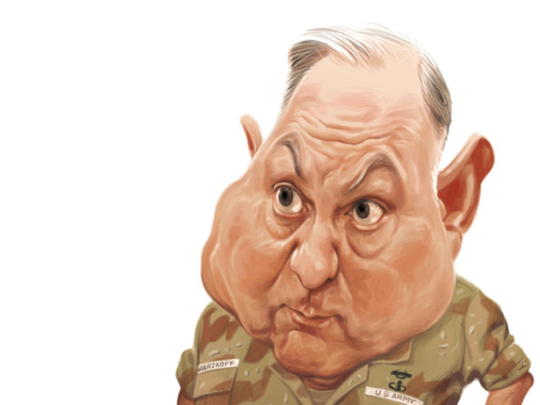
General Norman Schwarzkopf’s autobiography is called It Doesn’t Take A Hero and was written in the six months after he cleared Iraqi troops from Kuwait in 1991 and sent them scurrying back to Baghdad.
For many, he was a hero. And “Stormin’ Norman” will live on in history as a hero. Sadly, he died on December 27 at the age of 78 in Tampa, Florida, due to complications from pneumonia.
Leadership is a funny thing. It can be being in the right place at the right time, being prepared for any situation, having the bearing to take control, take command, earn instant respect, have knowledge and fortitude, a knack of knowing what to do and when to do it. General Schwarzkopf had all of those in abundance — plus a bearing that seemed to be capable of reaching out and physically strangling Saddam Hussain no matter where the Iraqi tyrant was cowering in a bunker in Baghdad.
New Jersey folks are born with a swagger — it must be the innate need to overcome an inferior mentality from being born on the wrong side of the Hudson River from New York. His father was a detective, the lead investigator in the Lindurgh baby kidnapping and abduction case. He later went to Tehran after the Second World War and helped set up the Shah’s secret police — and young Norman spent several years there.
Schwarzkopf’s swagger took him into the US Army and West Point from where he graduated in 1956. He earned a Masters degree in Science and was assigned to the Army’s ballistic missile service. That type of a career would be safe, secure and out of trouble — if ballistic missiles at the height of the Cold War with the Soviet Union could indeed be considered safe, secure and out of trouble.
For Schwarzkopf, it wasn’t enough. Vietnam was the hot theatre of the Cold War and Schwarzkopf wanted a piece of the action. A hero? Yes. Leading from the front? Yes. Courage by the bucket? Yes.
His men were under fire, trapped in a minefield and were getting pulverised — unable to get out for fear of losing more to the mines. So Stormin’ Norman, then a battalion commander, has his personal Huey helicopter land in the middle of the minefield, has injured men flown away in it and is badly injured himself saving a private who was too hurt and too scared to do anything. (Honestly, if they come to casting his role in Hollywood, Austrian Arnie would be up for it.) Schwarzkopf carried the man to safety. He had subdued the frantic man with a wrestling technique he had picked up at high school.
Schwarzkopf emerged from that hell of Vietnam a hero — on paper and on the battlefield — the type of man who the men under his command would follow to that hell and back.
Schwarzkopf became a full General in 1988 and was appointed to head up the US Central Command in Tampa — then responsible for operations in the Horn of Africa and the Arabian Gulf. Call it a gut feeling, but the General drew up a war- game scenario based on the invasion of the Saudi oil fields by Iraq. It was that plan prepared months in advance that was to be the blueprint for Operation Desert Shield — protecting Saudi Arabia after Iraqi forces stormed into Kuwait on a campaign of occupy and pillage.
While the world built a coalition of the willing to end the invasion and send Saddam packing, Schwarzkopf became a public figure, a commanding presence.
And as Operation Desert Storm — the military operation to remove the Iraqis’ — was about to get underway, Schwarzkopf brilliantly created an impression of the strength of Iraqi armour, giving every reason to believe a strike would be from the south and face stiff opposition. It was a feint — one that saw Saddam’s military overwhelmed and gutted within a 100 hours.
Historians have long debated why the US-led coalition of the willing never went and finished the job and moved into Baghdad. How many more lives would have been saved with the 2003 invasion of the unwilling?
Retiring from the military, Schwarzkopf had the opportunity to enter politics — he could have walked a presidential nomination from the Republicans and could easily have landed his Huey on the White House lawn.
But for him, politics was a minefield worse than Vietnam.
But he was a hero too in retirement.
After serving president George Bush senior so well in Iraq, he warned Bush junior of returning in 2003. Schwarzkopf was right. Bush junior was wrong. The wisdom of leadership. The folly of youth.
Schwarzkopf was one of a few good men.








